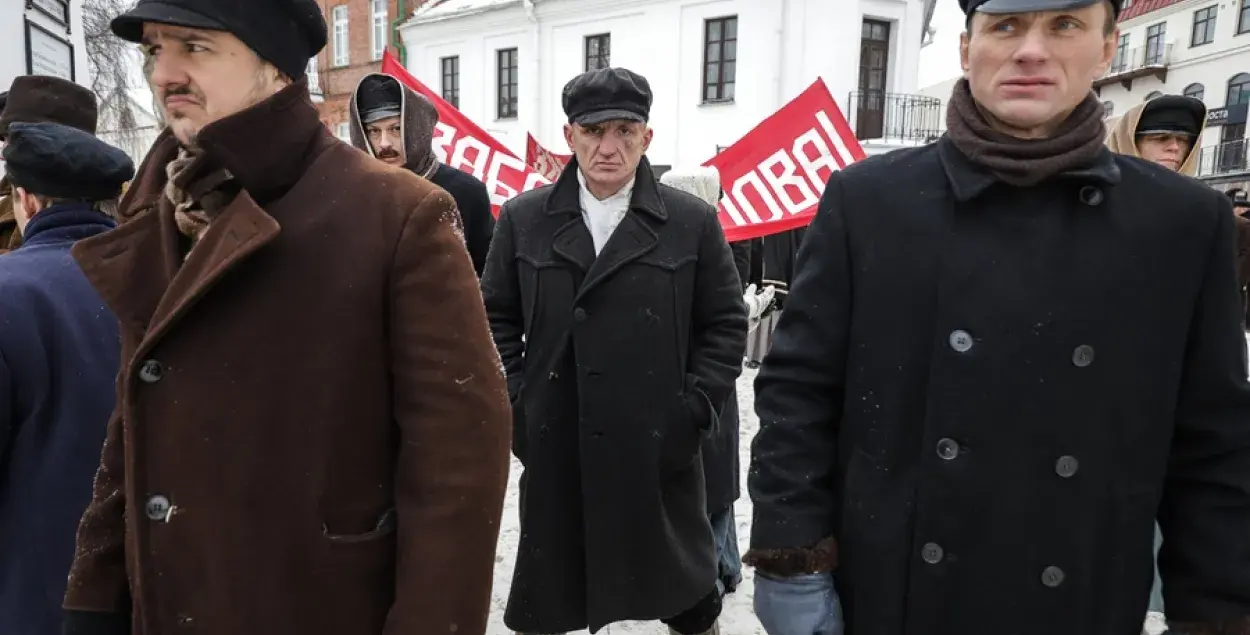KUPALA movie premier delayed over fears of Kremlin's anger?

Photo from the Kupala movie set / sb.by
Kupala is the latest flagship project of Belarusian state cinema company BelarusFilm overwhelmed with scandals. One of them is related to the never-ending postponement of the film's public release. The premiere was initially planned for December 2019, but so far only a select few, including Taras Tarnalitski, journalist and movie critic, have watched it. Taras is lucky because he was allowed to preview Kupala in the company of director Uladzimir Yankouski.
Taras Tarnalitsky wrote about his impressions of the film and also asked the director to comment on some rumors.
In particular, the film's budget - $1.5 million - became a piece of common knowledge. Belarus President Alyaksandr Lukashenka and officials watched the film and they all spoke highly of the historic drama about Belarusian poetry classic Yanka Kupala.

Euroradio read Tarnalitsky's article and decided to ask him some questions about the film which has received the 'cinema of national significance' status and was shot at the Belarusfilm studio.
Euroradio: It follows from your text that before Yankouski the project was offered to four directors, but they all refused. Who are they?
Taras Tarnalitski: As Yankouski himself said, I know their names, but I will not list them, because it is not so important who they were. It's a normal procedure to hire a director under a state order. If you understand the way the film industry in Belarus is organized, this information does not cause any wow-effect.
Euroradio: But why did they refuse?
Taras Tarnalitski: Yankouski did not go into details. But it seems to me that some were afraid of the project because it's very complex. It's a huge responsibility, so maybe not everyone wanted to take it. Also, maybe for many authors, it's just not the project they would like to make, they were not interested in the Kupala film.
Euroradio: The postponement of the premiere, which was supposed to take place in December, is associated by many with the negotiations on deep integration between Belarus and Russia, which were taking place then. Is there anything in the film that can make the Kremlin angry?
Taras Tarnalitski: It depends on who writes about it and how they do it. The Russian propaganda will cling to anything. And Kupala is, in a sense, a post-colonial film. From the context of the film, we can see that Belarus was a colony first of the Russian Empire, and then the Soviet Empire: colonial dependence was not good for us in cultural terms. The characters of the film pronounce that "we have been oppressed."
Euroradio: How much is the film ready for festivals? Will a foreign viewer understand it?
Taras Tarnalitski: In general, the story is universal, but the context is local. There are a lot of historical moments there, because the film is biographical - about all stages of Kupala's life. You have to understand the context there. Without it, you may have problems with understanding. There are some hints of the author's reflection, but for me, it's still an entertaining film.
Euroradio: You promised to publish your review a little later. But now you can express your impressions - did you like the movie or not?
Taras Tarnalitski: I can say that I liked the movie. Based on what Belarusfilm has been making for the last 10 years, it's definitely the best movie of the period. The last thing I liked was Masakra [2010 - Euroradio] directed by Kudzinenka. There were also issues with the production, but in general the film was aesthetically complete. It was clear that the author did not want to do it for the sake of appearance. With Kupala the story is exactly the same -- a person just wanted to make a good film.
According to Tarnalitski, the media premiere may take place in March this year. However, the general public will see Kupala in November 2020. After that, a TV version will be aired consisting of several episodes.

















